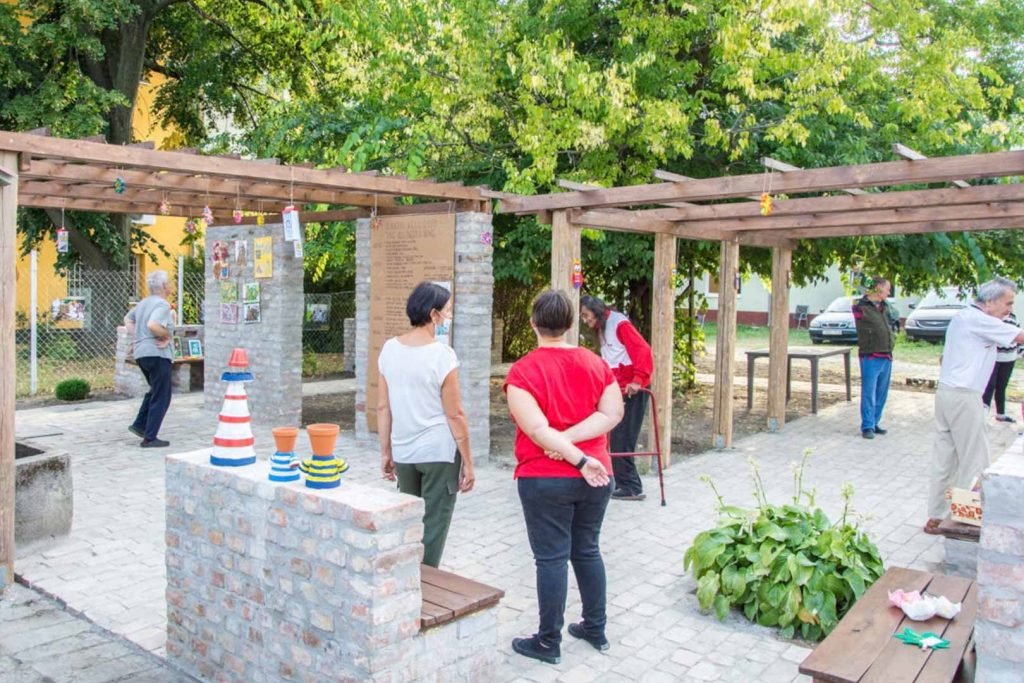The Research Group for Solidarity in Architecture at the Faculty of Engineering and Information Technology of the University of Pécs has organized the Lakni Kell (We All Need a Home) workshops since 2016. This core initiative addresses homelessness as one of the greatest challenges facing society today. The approach centers community-based partners with student-teacher teams collaborating in architecture education. Resulting small-scale interventions in public and private spaces take on increasingly complex programmatic ambitions. These efforts expand the conception of designers as citizens while improving the lives of people served.
Cause
The largest homeless organization in Pécs, the TÁMASZ Foundation invited the Lakni Kell organizers to participate in a new project with the Foundation’s Nursing Home for the Homeless. Of the 50 formerly homeless individual residents, many are limited in their mobility, are home-bound or otherwise unable to leave the facility. Although TÁMASZ provides essential nursing services for these cumulatively disadvantaged people; the unused, neglected yard attached to the building was not serving the residents’ nor the care staff’s needs. Students and organizers were invited to imagine the possibilities for a social and community-building space to serve the members of this community.
Method
Teaching social change requires community centered practices, social design and design thinking, and a practical application of these principles to inform design-build pedagogy. Each Lakni Kell intervention begins with a workshop that puts the concerns, conditions, and perspectives of unhoused people at the center. These vital conversations dispel stereotypes associated with homelessness and subsequently steer design responses to address verified needs and conditions. At the nursing home this dialogic approach included social workers in collaboration with residents, and together with university students and educators we sought out opportunities for small-scale interventions to make measurable change. Ultimately, the exterior courtyard space lent a site to explore improvements aligned with principles of a circular economy and the creation of a sustainable environment.
Impact
The result is a barrier-free community space created in the yard of the TÁMASZ Nursing Home. Realized with a minimal budget and using recycled building materials, the versatile space design features pergolas supporting climbing-plants, while providing shade and rain shelter; benches arrayed for solitude, group conversations, and board games; and exhibition surfaces for resident-made arts and crafts. The new yard has brought lasting change to the lives of the residents and to those collaborators at TÁMASZ committed to social justice. At a time of ongoing housing crisis, the broader society in Hungary — as is the case globally — often neglects underlying issues contributing to housing insecurity and homelessness. Housing activists and civil society lack both funding and attention to properly change the situation. Against this backdrop the team received feedback about how important and validating Lakni Kell’s modest, but caring investment was for this community.

